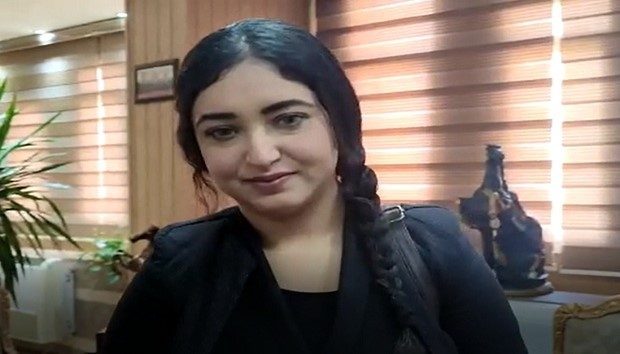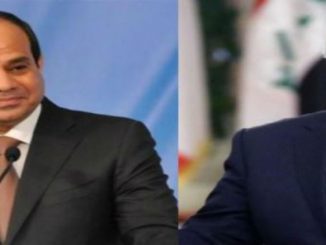
Social media users have been shocked at learning that a female pharmacist that had complained of being exposed to bullying from her colleagues, was accused by the Egyptian Prosecution of belonging to a terrorist organization.
Some news websites, including Belady and Rassd, have reported the appearance of the Egyptian pharmacist, Isis Mustafa, in the Supreme State Security Prosecution, with charges of joining a terrorist group and spreading false news.
The first investigations of the Zagazig Police Center’s officers, headed by Lt. Col. Muhammad Sedky, stated that a verbal altercation between the pharmacist and one of her colleagues developed into a quarrel between them.
According to their colleagues, Isis used to come to work late, sometimes outside the due attendance limits. Accordingly, the employee responsible for the attendance record used to register this delay, based on work rules, which used to anger Isis and finally led to the quarrel, but their colleagues intervened and ended the quarrel.
Later, the pharmacist filed a complaint, alleging that Ms. Amina, a female employee responsible for the attendance, had attacked her because she did not wear hijab, an allegation that Amina altogether denied.

The whole story
Isis Mostafa Ibrahim, a pharmacist, caused a wave of controversy after publishing a clip documenting an assault on her by an administrative colleague. Isis said that her colleague, Ms. Amina, dragged her after altercations between them on attendance. She also claimed that the real reason for the quarrel was for not wearing the hijab, which was denied by Amina.
Mrs. Amina, who is responsible for the daily attendance and departure record at the health unit in Kafr Atallah affiliated with the Zagazig Health Department, that was accused of attacking the pharmacist Isis, completely denied the bullying accusations.
She said that the reason behind the incident was only related to performing my duty in supervising attendance at the hospital, including doctors, pharmacists female and male nurses, and workers.
While Isis Mustafa claimed that this happened because she did not wear hijab, investigations said it was only because altercations about attendance.
Isis explained, during a telephone interview with the journalist Sherif Amer on his TV program “Happening in Egypt”, that one of her colleagues, called Amina, beat her together with another woman, adding: “From May, she used to bully me because of my hair (she means not wearing a hair cover) and she always used to say that God will not accept your prayers.”
“At work, they bullied me on the pretext of coming late to work, and Amina used to prevent me from signing,” Isis said.
However, Amina said that Pharmacist Isis used to come late, and that she (the pharmacist) used to be angry when I register this by putting a mark in front of her name in the attendance record, not enabling her to sign.
At that day, Amina said, the pharmacist tried to take the attendance record by force to sign, outside the time allowed for attendance, but she couldn’t. Then, she threw the pen at me, causing a visible wound in my face; and that was the reason for the quarrel, not any other allegations.
On his part, Dr. Mabrouk Attia, an Azhar university professor and scholar, commented on this incident, in response to a question put to him by the TV presenter, Sherif Amer, saying:
“This issue has nothing to do with Isis not wearing a headscarf, but I think it is due to envy; that is, Isis’s female colleagues really envy her, as she is young and lovely, and this is the reason for their quarrel with her,” he said.
For his part, Dr. Mamdouh Ghorab, Governor of Sharqia, who received Isis at his office, commented on the incident, saying: “The matter is under investigation by the prosecution, and we are awaiting for results.”
Even although Pharmacist Isis is not at all considered an opponent of Sisi’s regime, especially here in this case, however, the regime’s injustice has affected all the categories of the Egyptian society.
Egypt’s Abdel Fattah al-Sisi and senior Egyptian officials usually respond to criticisms of controversial prosecutions or convictions by asserting that the country’s judiciary is an impartial institution, independent of the executive branch, which is not true.
This rosy picture is belied by two recent events in spring 2017, both highly illustrative: al-Sisi’s push to bring the judiciary under control by usurping the power to nominate senior judges.
Sisi’s transparent influence, was confirmed by U.S. administration officials, over detained Egyptian-American children’s rights activist Aya Hijazi’s criminal proceedings.
These and many other incidents show how Egypt’s criminal justice system is subordinate to presidential dictates and regime interests, and is routinely biased in favor of those who support the regime and against those whom the state considers opponents.



